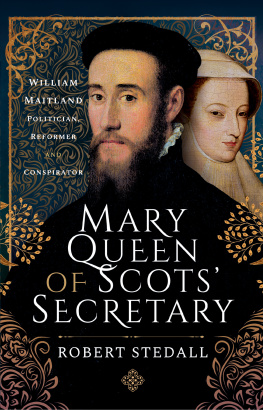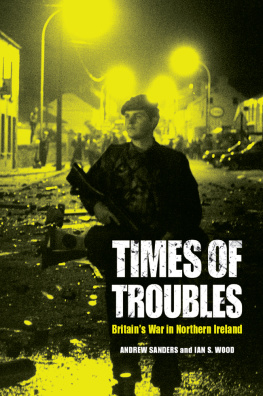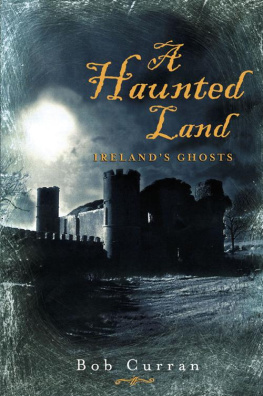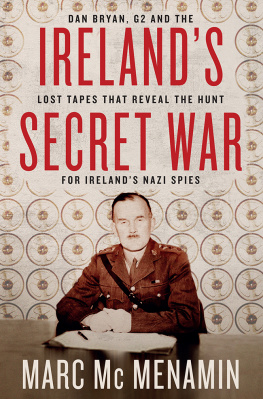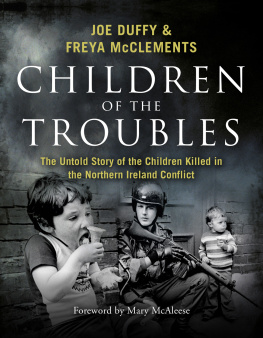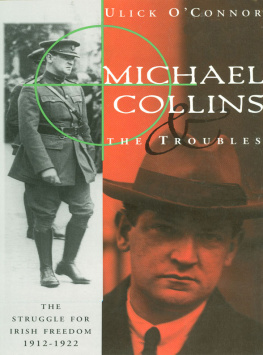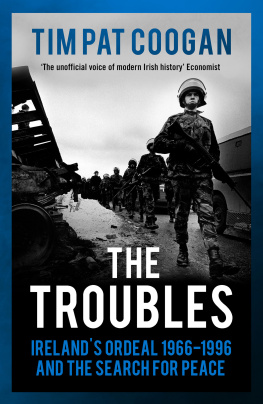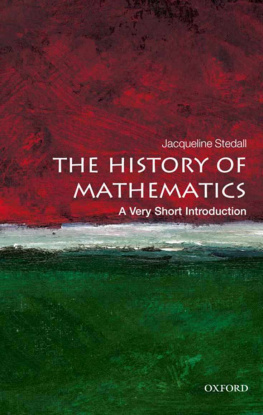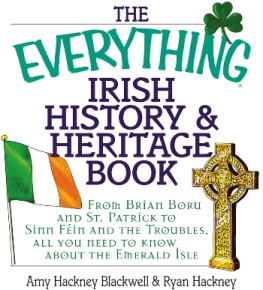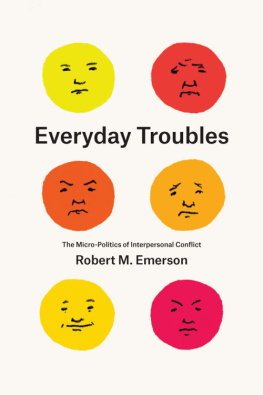The Roots of Irelands Troubles
The Roots of Irelands Troubles
Robert Stedall
First published in Great Britain in 2019 by
Pen and Sword HISTORY
An imprint of
Pen & Sword Books Ltd
Yorkshire - Philadelphia
Copyright Robert Stedall, 2019
Hardback ISBN 9781526742186
Paperback ISBN 9781526751614
eISBN 9781526742193
Mobi ISBN 9781526742209
The right of Robert Stedall to be identified as Author of this work has been asserted by him in accordance with the Copyright, Designs and Patents Act 1988.
A CIP catalogue record for this book is available from the British Library.
All rights reserved. No part of this book may be reproduced or transmitted in any form or by any means, electronic or mechanical including photocopying, recording or by any information storage and retrieval system, without permission from the Publisher in writing.
Typeset in INDIA By IMPEC e Solutions
Pen & Sword Books Ltd incorporates the Imprints of Pen & Sword Books Archaeology, Atlas, Aviation, Battleground, Discovery, Family History, History, Maritime, Military, Naval, Politics, Railways, Select, Transport, True Crime, Fiction, Frontline Books, Leo Cooper, Praetorian Press, Seaforth Publishing, Wharncliffe and White Owl.
For a complete list of Pen & Sword titles please contact
PEN & SWORD BOOKS LIMITED
47 Church Street, Barnsley, South Yorkshire, S70 2AS, England
E-mail:
Website: www.pen-and-sword.co.uk
or
PEN AND SWORD BOOKS
1950 Lawrence Rd, Havertown, PA 19083, USA
E-mail:
Website: www.penandswordbooks.com
Also by the same author:
Hunting from Hampstead: The Story of Henry and Lucy Stedall and their children , Book Guild Publishing, 2002
A two-volume history of Mary Queen of Scots:
The Challenge to the Crown, Volume I: The Struggle for Influence in the Reign of Mary Queen of Scots 1542 - 1567 , Book Guild Publishing, 2012
The Survival of the Crown, Volume II: The Return to Authority of the Scottish Crown following Mary Queen of Scots Deposition from the Throne , Book Guild Publishing, 2014
Men of Substance: The London Livery Companys Reluctant Part in the Plantation of Ulster , Austin Macauley Publishers, 2016
Mary Queen of Scots Downfall: The Life and Murder of Henry, Lord Darnley , Pen & Sword Books Limited, 2017
Website : www.maryqueenofscots.net
List of Illustrations
John Toland (1670-1722)
Rev. Thomas Emlyn (1663-1741)
Francis Hutcheson (1694-1741)
Henry Grattan (1746-1820)
Rev. William Steel Dickson (1744-1824)
James Napper Tandy (1739-1803)
Theobald Wolfe Tone (1763-1798)
Archibald Hamilton Rowan (1751-1834)
Thomas Russell (1767-1803)
Henry Joy McCracken (1767-1798)
Lord Edward FitzGerald (1763-1798)
Arthur OConnor (1763-1852)
Robert Emmet (1778-1803)
Daniel OConnell (1775-1847)
William Smith OBrien (1803-1864)
Charles Gavan Duffy (1816-1903)
Thomas Francis Meagher (1823-1867)
Charles Stewart Parnell (1846-1891)

Preface
I n writing my history of the London Livery Companies in Ulster, Men of Substance , published by Austin Macauley in 2016, I was always conscious that I had glossed over the background to sectarian violence in Ireland, particularly in Ulster, which remained, and continues to remain, an uncomfortable legacy of British colonisation. While Men of Substance outlined the Livery Companies efforts to establish and maintain settlements in co. Londonderry, a second line of research was needed to explain the impact of religion, politics and rebellion on the Irish people, which seemed to be behind the causes of centuries of conflict. Inevitably, there would be some overlap between the two subjects. To provide a cohesive text, I needed to revisit those parts of Men of Substance covering the periods of the Great Rebellion of 1642 1643, the War of the Three Kingdoms of 1643 1649, the Williamite Wars and the period of the Great Famine starting in 1845, but the focus now was on inept management by Church and State, which was often imposed with military force. It may seem unfathomable that tempers have continued to run so deep with friction remaining stubbornly close to the surface. Yet the protagonists have been slow to forgive and forget, jeopardising continuing efforts to secure a lasting peace.
Ireland is inhabited by differing groups, who have remained dogmatically wedded to conflicting ideologies, even though intermarriage has sometimes made it difficult to define where one begins and the other ends. For nearly five hundred years, it has been dogged by a dangerous cocktail of excuses for continuing unrest. Conflict has become endemic in the psyche of all those who now call Ireland their home; but what were the root causes for so much acrimony?
The objective of colonising both English and Scots into Ireland in the sixteenth and seventeenth centuries was to establish peace, but the settlers faced stubborn resistance from the indigenous Celtic inhabitants. Their arrival only exacerbated conflict and has been the root cause of almost continuous sectarian violence between Gaelic Catholics and arriving Protestants ever since. In its attempts to maintain control, the minority Anglican Ascendancy in Dublin forcibly imposed rule on the Catholic majority. It was unfortunate that, in the aftermath of the English Civil War, the battleground for control of Britain between Jacobite Royalists and Williamite Parliamentarians was fought out on Irish soil. This left its residents, whether native Irish or British settlers, as the cannon fodder in between.
Another problem was the failure of absentee British landlords to ameliorate the abject poverty of their tenantry. Their insensitive and grasping estate management brought destitution and famine to an ever-increasing peasant population, until the only remedy was wholesale emigration to America and Canada, leaving those left behind determined on revenge. Even in the late nineteenth century, Irish calls for tenant rights and home rule fell on deaf ears in the British Houses of Parliament. These were dominated by members of the landed classes, who benefitted from maintaining the status quo. With their sole interest being to score points off their political opponents, they remained oblivious to the realities of the growing hardship. This forced the destitute Irish down a route that led inevitably to the formation of an Irish republic and partition.





